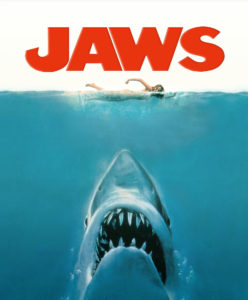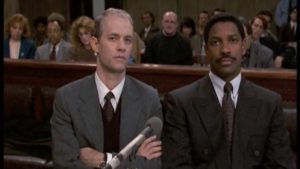By Terri Reddout
Which movies had an impact on our culture or society?
By impact, I mean, did the movie change how we look at the world? Did it change the way we speak? Did it change the way we see how others view the world?
So, which movies had an impact on our culture and society? It depends on who you ask.
- Ask a film buff and they might say Citizen Kane or Casablanca.
- Ask a war veteran and you might get answers as diverse as Bridge over the River Kwai, Born on the 4th of July, Coming Home, Full Metal Jacket, Apocalypse Now or Finding Private Ryan.
- Ask a feminist and you might get Norma Rae, Erin Brockovich or Thelma & Louise.
- Ask a kid (or a grown-up kid) and they might say anything with Avengers in the title.
A long time ago, in a galaxy far, far away…
In my day, a movie with impact had to be Star Wars. The story, the characters, the computer generated images took us to a new place and time.
When Ronald Reagan proposed the Strategic Defensive Initiative, a network of missiles to protect the U.S. from nuclear attack from Russia, the White House dubbed it “Star Wars.”
Star Wars also added catch phrases to our conversations, like “May the Force be with you,” Yoda’s “Do. Or do not. There is no try,” or when Obi Wan Kenobi uses his Jedi Mind Trick to convince the Storm Troopers “These are not the droids you are looking for.”
My favorite has to be when Princess Leia professes her love to Han Solo before evil forces freeze him in carbonite. Han simply replies, “I know.”
Duh, daa. Duh, daa. Duh, daa, duh, daa, duh, daa… SHARK!
Of course, JAWS had a huge impact on culture in my youth.
I remember an 80-year-old woman sitting next to me in a darkened theater yelling “Bite it. Bite it!” when the shark had the SCUBA tank stuck in his teeth.
The local radio station created a group they called JAWS: Join Against Wicked Sharks. They encouraged listeners to call in with shark sightings from rainy highways, irrigation ditches or even from the water fountain at the local mall.
The movie is said to the inspiration for the Saturday Night Live “Land shark” skits.
AIDS information goes main stream
In the late 80s and early 90s a new disease caused panic, lifestyle changes, and impacted our economy. The disease? AIDS.
Two decades ago, we just didn’t know much about AIDS. What is it? Who gets it? How do we fight it?
I remember a young Tom Brokaw reporting stories night after night about a mysterious disease primarily striking homosexual men. At the time, AIDS didn’t even have a name.
When AIDS did get a name, no one knew exactly how you got it. There were a lot of myths, including you could get AIDS from a toilet seat. At the time, an LA Times Poll found that over 50 percent thought AIDS patients should be quarantined. Another 15 percent supported the idea that all AIDS patients be given an identifying tattoo. (Flashback to concentration camp Jews being given identifying tattoos.)
Then, along came the 1993 movie Philadelphia.
It’s the story of a high-powered attorney who gets fired for having AIDS. He then uses the Federal Disabilities Act to sue the legal firm for dismissing him. The film stars Tom Hanks as the upscale attorney with AIDS and Denzel Washington as the cut-rate store-front attorney who represents Hanks’ character.
Over the course of the movie, we learn more about AIDS, even though there wasn’t much to know at the time. At first, Denzel Washington’s character isn’t sure if he should shake hands or even be in the same room as Tom Hank’s character. We get a better idea of how the disease spreads as the film unfolds.
Washington’s character learns more about Hank’s lifestyle and recognizes the similarities between Hank’s family and his own. This help to shatter homophobic attitudes for many people.
This movie trailer for Philadelphia may give you a better insight into the attitudes about AIDS at the time.
Philadelphia was the first big money motion picture to deal directly with AIDS. It shined light on a still mysterious disease. It started conversations; conversations that made AIDS less of a stigma and more of a disease that had already killed thousands.
Personally, I would argue both Denzel Washington and Tom Hanks should have received Oscar nominations for this film. Denzel Washington didn’t. Tom Hanks did. And when he accepted his Oscar, Hanks continued the AIDS education.
My partial list of runner-up movies with impact
(No, there are no Schwarzenegger movies.)
There’s lot of other movies with impact. “Guess Who’s Coming to Dinner?” deals with interracial relationships way back in 1967.
“Supersize Me” documents in dramatic fashion the impact eating fast food has on your health. (Morgan Spurlock ate McDonald’s for breakfast, lunch and dinner for 30 days. He gain 24 pounds, his cholesterol dramatically increased and he suffered from severe mood swings and sexual dysfunction!)
Black Panther had a huge impact on Black representation in Hollywood. The movie featured characters representing different African tribes, the director and cast were all Black and even the music came from Black culture.
Do movies have an impact on our culture. Hell yeah!
The reason you don’t see Shamu jumping through hoops at Sea World anymore has a lot to do with the documentary Blackfish.
In the Disney movie Bambi, hunters shoot and kill Bambi’s mom. Hunting dropped by 50 percent immediately following the movie’s release. It even invented the term “Bambi Effect.”
At the beginning of this blog, I mentioned JAWS. Vacations to beach resorts on both coasts dropped dramatically after the film’s release.
And movies bring families closer together. How many holidays are spent gathered around the tube watching Elf, Christmas Vacation, or Love, Actually.
The Assignment:
The following TED talks address how movies change how we view the world.
Jeff Skoll : My journey into movies that matter shares how his production company “Participant Productions” makes a difference to humanity. Skoll’s production company produced the Oscar winning films An Inconvenient Truth, Syriana, and Good Night, and Good Luck. (15:30)
Sharmeen Obaid-Chinoy: How film transforms the way we see the world This documentarian talks about how documentary films changed attitudes about the Pakistan custom of honor killing… culturally accepted murder of disobedient women. (12:19)
Beeban Kidron: The Shared Wonder of Film shares how a film program in the U.K. helped change children’s attitudes, got them more involved in political issues and increased their critical thinking skills. (13:12)
Collin Stokes: How movies teach manhood feels movies send our children different messages based on gender. (12:53)
Bollywood lyricist and screen-writer Javed Akhtar: Cinema in Society says, “If you look closely at Indian cinema, you can write the social, economical and political history of our country.” (18:30)
America Ferrera talks about being a Latina in the movie business. (14:03)
Jon M. Chu talks about what led up to him directing “Crazy Rich Asians” and it’s impact on Asian culture. (14:22)
If, for some reason, the links don’t work, type the speaker’s name and the name of the speech into Google and look for a TED Talk with that title.



